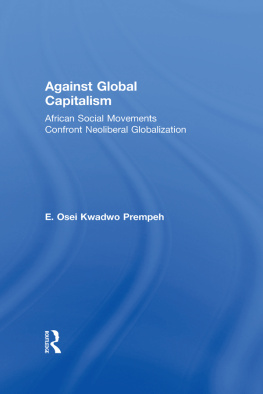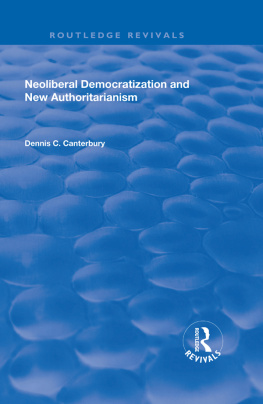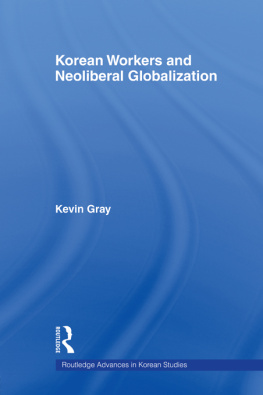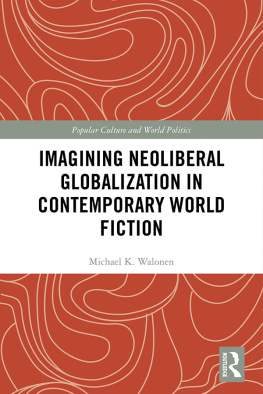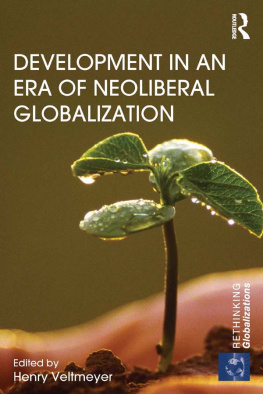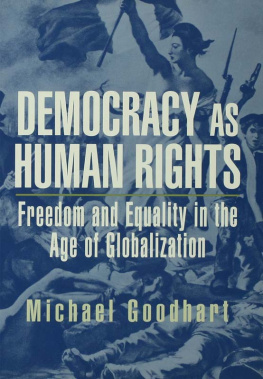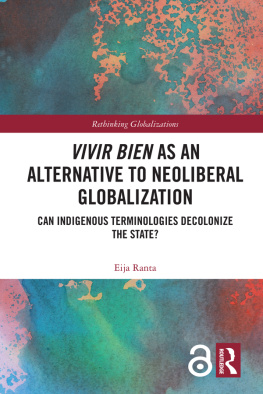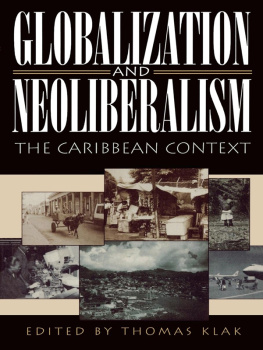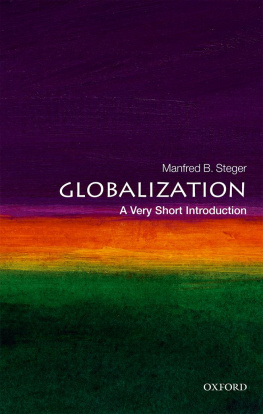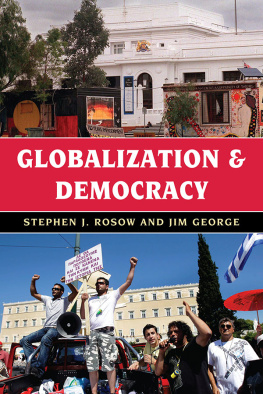Against Global Capitalism
African Social Movements Confront Neoliberal Globalization
E. OSEI KWADWO PREMPEH
Carleton University, Canada
First published 2006 by Ashgate Publishing
Published 2016 by Routledge
2 Park Square, Milton Park, Abingdon, Oxon OX14 4RN
711 Third Avenue, New York, NY 10017, USA
Routledge is an imprint of the Taylor & Francis Group, an informa business
Copyright 2006 E. Osei Kwadwo Prempeh
E. Osei Kwadwo Prempeh has asserted his right under the Copyright, Designs and Patents Act, 1988, to be identified as the author of this work.
All rights reserved. No part of this book may be reprinted or reproduced or utilised in any form or by any electronic, mechanical, or other means, now known or hereafter invented, including photocopying and recording, or in any information storage or retrieval system, without permission in writing from the publishers.
Notice:
Product or corporate names may be trademarks or registered trademarks, and are used only for identification and explanation without intent to infringe.
British Library Cataloguing in Publication Data
Prempeh, E. Osei Kwadwo, 1960
Against global capitalism: African social movements
confront neoliberal globalization
1. Anti-globalization movement - Africa 2. Globalization
Economic aspects - Africa 3. Africa - Foreign economic
relations 4. Africa - Economic conditions - 1960
I. Title
303.484096
Library of Congress Cataloging-in-Publication Data
Prempeh, E. Osei Kwadwo, 1960
Against global capitalism: African social movements confront neoliberal
globalization / by E. Osei Kwadwo Prempeh.
p. cm.
Includes index.
ISBN-13: 978-0-7546-4764-5
ISBN-10: 0-7546-4764-1
1. Democratization--Africa. 2. Anti-globalization movement--Africa. 3. Globalization--Africa.
4. Neoliberalism--Africa. 5. Africa--Social conditions--1960- I. Title.
JQ1879.A15P72 2006
303.4826--dc22
2006020644
ISBN 9780754647645 (hbk)
I owe a debt of gratitude to a number of colleagues at Carleton University and other institutions who have shared their ideas and thoughts in insightful and challenging ways and helped shape my intellectual work. This particular volume would not have been possible without the support and guidance of my Commissioning Editor at Ashgate Publishing, Kirstin Howgate, and the wonderful, professional and caring staff. I am thankful as well to my research assistants at the University of Ghana and Carleton University, the administrative support staff at the Department of Political Science and the Department of Sociology and Anthropology and the librarians at the Circulation Desk of the McOdrum Library at Carleton University, especially Carole Tattersall. Special thank you to the anonymous reviewers for Ashgate Publishing for their honest comments. Most importantly, I am profoundly grateful to Anna and the kids for their constant support and encouragement.
As contemporary neoliberal globalization has intensified and consolidated since the 1980s, its hegemonic and exploitative nature has provoked new waves and modalities of contestation and resistance. The contested and politicized nature of neoliberal globalization, which Arturo Escobar aptly refers to as a new US-based form of imperial globality, an economic-military-ideological order that subordinates regions, peoples and economies world-wide (2004, p. 207), has drawn attention to the challenge of resisting the global dominance of this new emergent imperialism. The key political tension exists between the forces of globalization and the forces of resistance, and at the heart of this is a paradox: globalization both weakens and simultaneously reinvigorates the forces of contestation and resistance. Put another way, imperial globality and global coloniality has marginalized and subordinated the knowledge, power and culture of subaltern groups in the Third World in general and Africa in particular and has provoked the emergence of new grassroots-based social movements, which are engaged in counter-hegemonic struggles that represent both a challenge and alternative to this new form of imperialism and colonialism.
Over the years, critical scholars have made considerable effort in exploring and revealing the new forms of hegemonic power inherent in neoliberal globalization. This research has resulted in the deconstruction of the hegemonic knowledge and praxis of globalization and the emergence of a new construct that captures the emergence of new social movement networks engaged in counter-hegemonic globalizations as a challenge and alternative to empire. Yet it remains underappreciated the extent to which the disruption of this new hegemonic mode of thinking and contestation is also occurring from a number of other sites of knowledge production outside the core Western countries especially in Africa, from where resistance strategies and alternative approaches are being envisioned and articulated. This book seeks to lay out a new research agenda for examining the landscape of contestation and resistance in Africa with an emphasis on specific African popular struggles and manifestations of the deglobalization of capital orientation and the anti-capitalist movement. Indeed, the eruption of these emergent social movements and civil society groups, beginning in the mid-1980s and continuing to the present, has posed serious challenges to the hegemonic discourse and project of neoliberalism. We seek to outline a dialectical perspective about the hegemony of neoliberal globalization and the counter-hegemonic contestation and resistance of social movements by capturing the resistance and struggles of social movements in Africa with issues of development, the New Partnership for Africas development (NEPAD), debt, trade, HIV/AIDS and the privatization of water. In contesting and resisting neoliberal globalization, these emergent movements challenge the prevailing system of a globalized world whose rules are rigged in favour of the rich countries and big transnational corporations to the detriment of the poor.
Social Movements and the Challenge of Democratizing Globalization
At the core of this counter-hegemonic movement is the critical role of civil society in advancing democracy. Central to this project is the reinvention of the praxis of emancipatory social movements and the re-imagining of democracy. This book therefore addresses this aspect of the fundamental challenge of democratizing globalization, that is, opening up spaces for democratic participation beyond the state. Such reinterpretation entails an enlarged conception of democracy through a strengthening of social movements and civil society in local and global contexts to confront the global economic and social inequalities engendered by corporate globalization. The reach and meaning of democratizing globalization have to be more coherently and forcefully articulated to include the issue of instituting democratic accountability in global economic governance institutions such as the International Monetary Fund (IMF), the World Bank and the World Trade Organization (WTO) that are centrally placed in propelling the key instruments of the neoliberal corporate agenda of free trade, deregulation and commodification and of capturing the more radical democratic, self-governing activities of social movements and civil society groups presenting a new anti-systemic resistance and struggle within the anti-capitalism movement. As such this approach challenges the grain of contemporary theorizing through a critical investigation of its key concepts and ideas, while providing an alternative revision.

